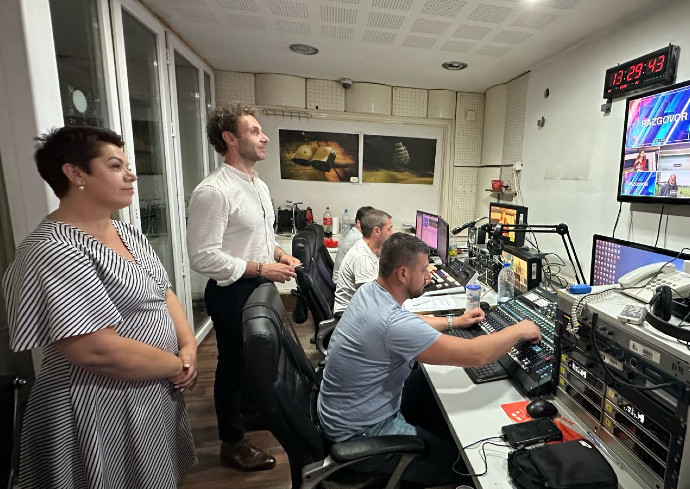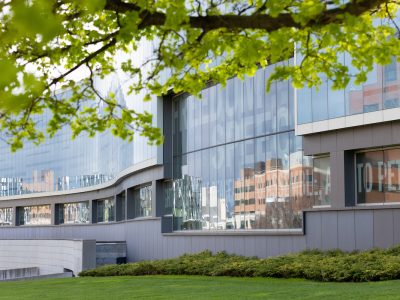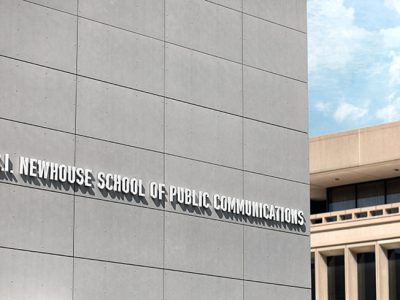Professor Anthony Adornato Trains Journalists in Kosovo Through Fulbright
For Associate Professor Anthony Adornato, a recent Fulbright experience brought him back to his journalism roots.
The former television anchor and reporter returned from a three-week Fulbright Specialist experience in Kosovo, where he trained journalists at the country’s public service broadcaster, Radio Television of Kosovo (RTK), as part of the New Trends in Communication project.
Adornato, associate professor and chair of broadcast and digital journalism in the S.I. Newhouse School of Public Communications, went into the field with reporters, covering a variety of stories, and led sessions on social media and audience engagement.
“It was such a rewarding experience,” Adornato says. “I was welcomed with open arms and felt right at home at RTK.”
Below, he reflects on the experience and his continued collaboration with RTK.
Please tell us a little about RTK.
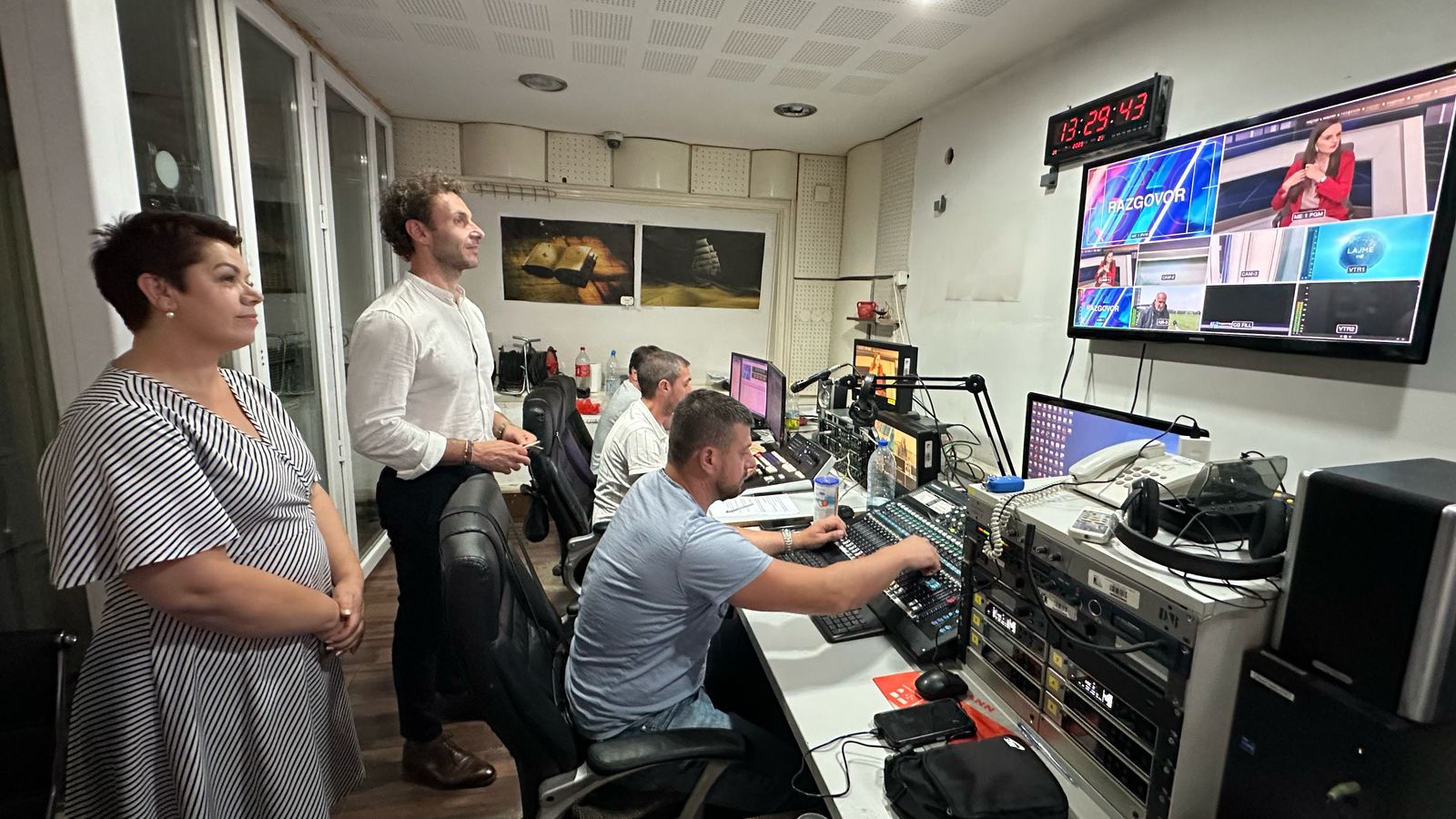
RTK was established after the Kosovo War (February 1998 to June 1999) and operates both radio and television platforms. As Kosovo’s national broadcaster, RTK plays a vital role in delivering news across the country. Its services are available through both terrestrial and satellite networks, reaching not only people in Kosovo but also members of the significant Kosovar diaspora who left the country after the war.
RTK provides programming in both Albanian and Serbian, reflecting the country’s linguistic diversity. While it is primarily funded through the state budget, this financial structure has raised ongoing concerns about editorial independence and long-term sustainability.
What kind of training did you give, and what are some of the trends and best practices that you shared with the journalists?
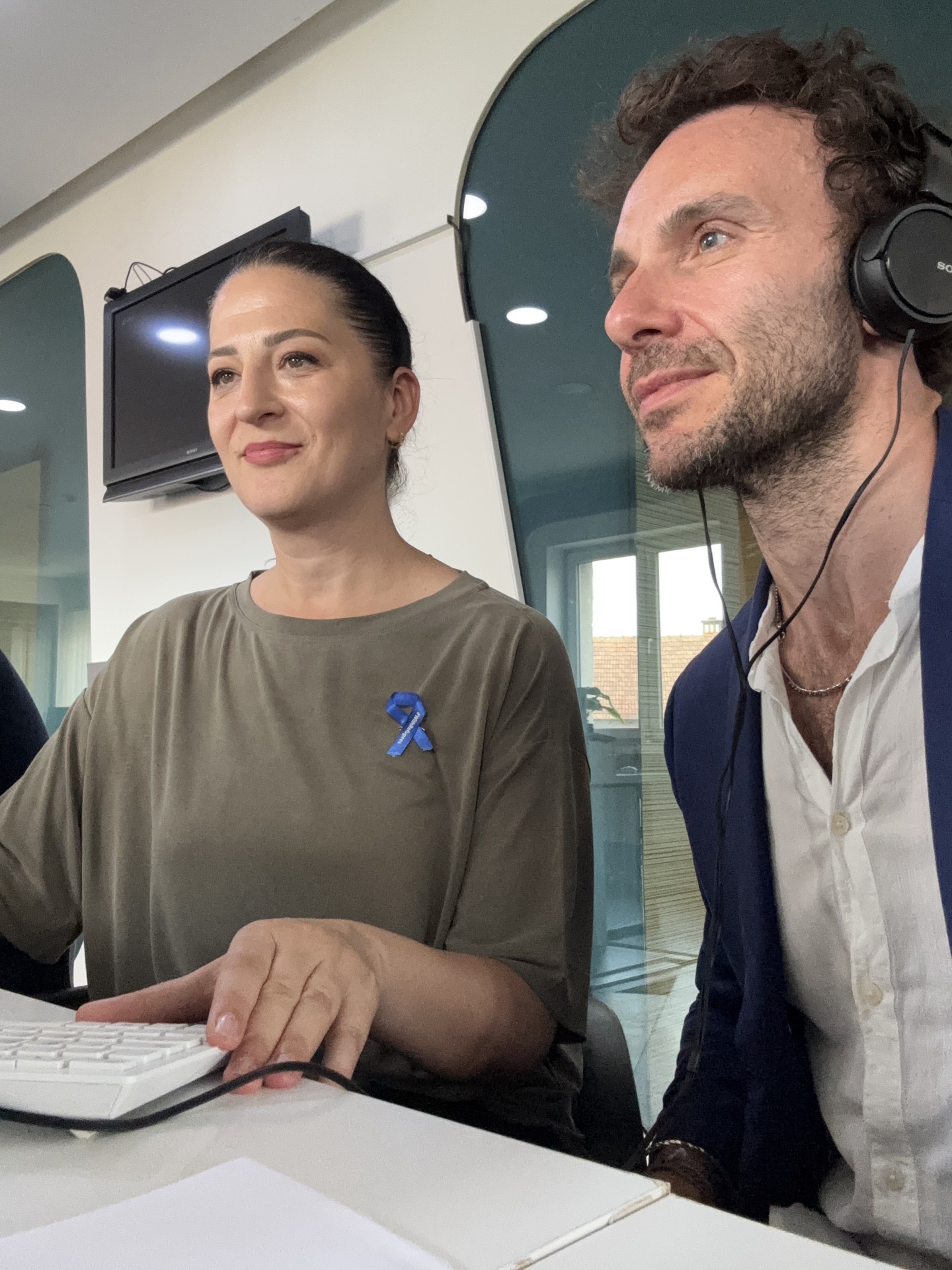
I worked closely with both the social media and website teams, as well as with journalists in the main newsroom. I had the chance to go into the field with journalists to cover a variety of stories, including a court case involving a politician and the environmental effects of a polluted river on a local neighborhood. These stories were featured in RTK’s national evening news.
In addition to fieldwork, I led hands-on sessions focused on mobile journalism, multimedia storytelling and social media strategy. The social media team quickly applied new Instagram approaches we developed together, aiming to offer followers more meaningful content and interaction. We also explored such current trends as solutions journalism and audience engagement tactics—approaches that help news organizations build trust and connect more deeply with their communities.
Kosovo is a young democracy. How critical is RTK’s work there?
RTK’s role is absolutely critical. Witnessing efforts to build democratic systems, particularly a free press, was incredibly impactful. As a public broadcaster, RTK is central to informing citizens, promoting transparency and contributing to a shared national identity in a post-conflict society.
It also plays an important role in countering disinformation from foreign actors. Russia—and to some extent Serbia—are known to push disinformation in Kosovo as part of broader regional strategies in the Balkans. These narratives often aim to undermine Kosovo’s independence and state institutions and promote anti-democratic sentiment.
What similarities/differences have you seen between media in Kosovo and the United States?
One of the most striking similarities is the shared passion for journalism. In both countries, journalists are deeply committed to truth-telling and serving the public interest. While Kosovo’s media sector operates with more limited resources and infrastructure, the core values of journalism—accuracy, accountability and integrity—are clearly present.
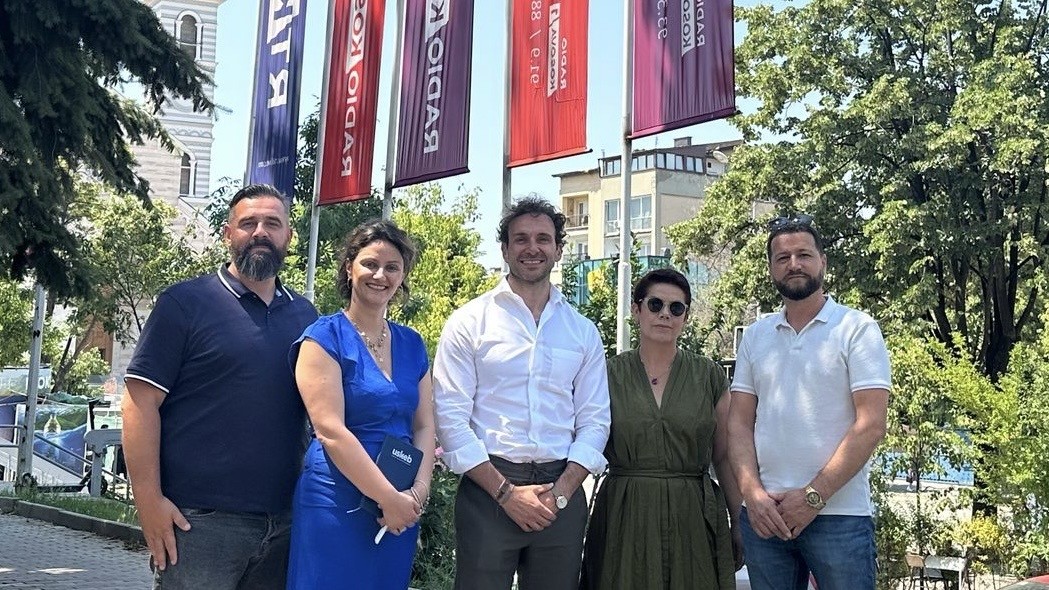
RTK journalists work under challenging conditions, with outdated equipment, staffing shortages and low wages. Despite these hurdles, they remain dedicated to providing reliable information to the public. The challenges they face highlight the resilience and determination of those working in public media.
RTK faces significant challenges common to public media in transitional democracies, including threats to editorial independence, given that it is government funded, and lack of sustainable funding. Currently, RTK is navigating a severe financial crisis due to the failure of institutions to allocate the legally approved budget. The International and European Federations of Journalists, along with the Association of Journalists of Kosovo, have urged authorities to ensure stable funding for RTK.
Will your collaboration with the RTK journalists continue into the future?
We ended my stay by discussing future visits and ongoing collaboration. I see this Fulbright Specialist experience as just the beginning of a long-term partnership. Now that I understand RTK’s internal operations and have developed strong relationships with many of the journalists, we’re brainstorming ways to continue knowledge-sharing and training well beyond this initial visit.
What would you say to fellow faculty who might be interested in pursuing a similar Fulbright experience?
A Fulbright—whether through the Specialist Program or the U.S. Scholar Program—is personally and professionally enriching in ways that exceeded my expectations. It offers a unique opportunity to share your expertise while also learning from colleagues abroad.
Fulbright experiences often lead to longer-term collaborations. For example, in 2021 I was a Fulbright Scholar in Italy. After teaching a mobile and social media journalism course to Italian master’s students in Milan, I’ve been invited back each year, and the course is now a regular part of the curriculum. If you are applying for a Fulbright Scholar, you’ll want to time that with a sabbatical because these are typically a minimum of a semester. The Fulbright Specialist program is shorter-term, so even those who are not eligible for a sabbatical could easily make this work.
Look at the required application materials. That will give you an idea of the time commitment. Also, chat with those who have taken part in the Fulbright program. There is a CNY Fulbright Chapter that could be of help too—the members have taken part in some type of Fulbright and include professors and practitioners.
